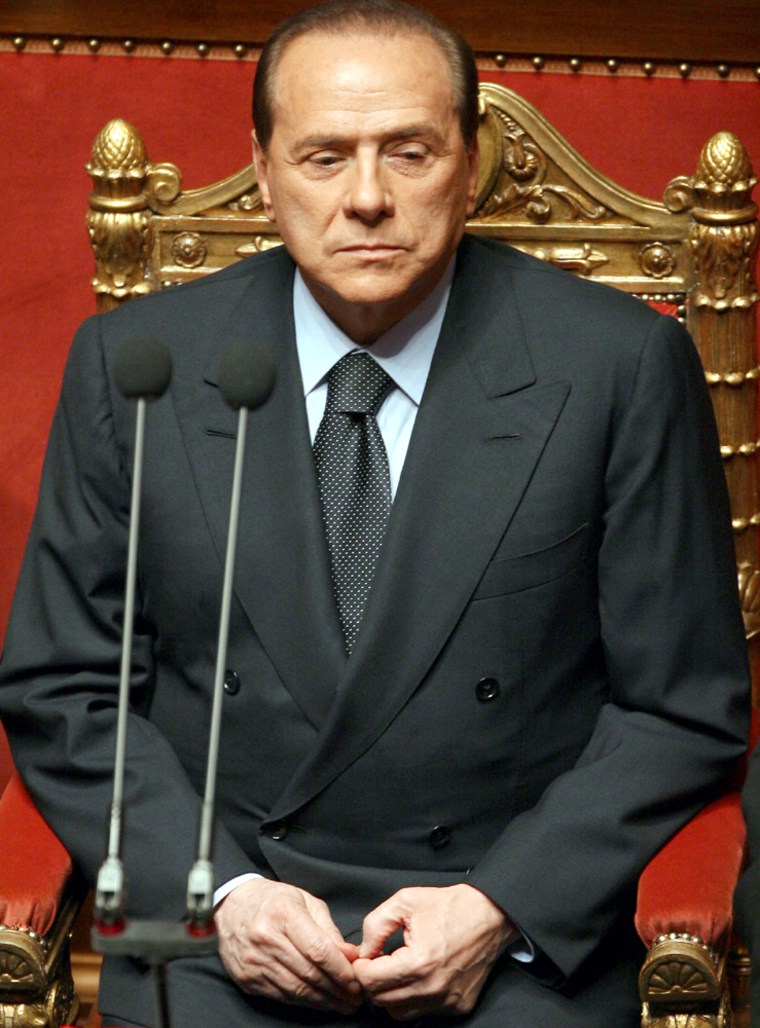Italy’s president opened talks with party leaders Thursday, a day after Prime Minister Silvio Berlusconi resigned as premier following weeks of infighting within his conservative coalition and amid mounting criticism over the country’s sluggish economy.
President Carlo Azeglio Ciampi has two options: dissolve parliament and call early elections or designate a premier to assemble a new government. He is widely expected to ask Berlusconi to form a new Cabinet to serve until the end of the legislature in mid 2006.
If that is the course he takes, the new mandate for Berlusconi might come as early as Friday, Italian news reports speculated.
An old political trick
Berlusconi stepped down Wednesday while vowing to quickly form a stronger, revamped Cabinet to restore confidence in his leadership. Resigning and then immediately shuffling the government is an old trick of Italy’s complicated political system, and has been used by premiers to strengthen faltering coalitions.
Berlusconi was leading Italy’s longest-serving government since World War II and had resisted the move, sensing it would undermine his image as a new-style politician. On Wednesday, he suggested he would have preferred to stay.
“One can’t always get what one wants,” he said, acknowledging the end of his ambition of heading Italy’s first postwar government to serve an entire five-year term.
But the resignation, which he submitted to the president, is expected to enable Berlusconi to end weeks of fighting with his allies, who had demanded that he step down and revamp the Cabinet following an embarrassing defeat in April 3-4 regional elections.
Berlusconi is staying on as caretaker, and the Apcom news agency quoted him as saying that he expects the crisis to be over by the end of the week. He reportedly said he will not change many ministers, but did not give details.
The resignation was welcomed by his allies, who had demanded it after the electoral defeat.
“His speech was excellent,” said Gianfranco Fini, who serves as deputy premier and foreign minister.
Faltering popularity
Berlusconi’s popularity has been sagging, faced with criticism over his support for the U.S.-led war in Iraq and the lackluster economy.
In Wednesday’s address to the Senate, Berlusconi appeared to appease some requests from his allies when he said the new platform would focus on aiding Italy’s underdeveloped south and financially pressed families.
The economy is high on the list of worries. Italy’s economy grew by 1.2 percent last year compared to an average 2 percent in the 12-nation euro zone, raising pressure on the government to contain its ballooning deficit under European Union rules.
The center-left opposition has been pressing for early elections, emboldened by polls suggesting they could win. In tune with most Italians, the center-left was against Berlusconi’s decision to send 3,000 troops to Iraq after the ouster of Saddam Hussein.
Pressure to pull out the troops mounted after the March 4 killing in Baghdad of an Italian intelligence agent who was escorting a released hostage. The agent was shot by U.S. troops who mistakenly fired on his vehicle.
